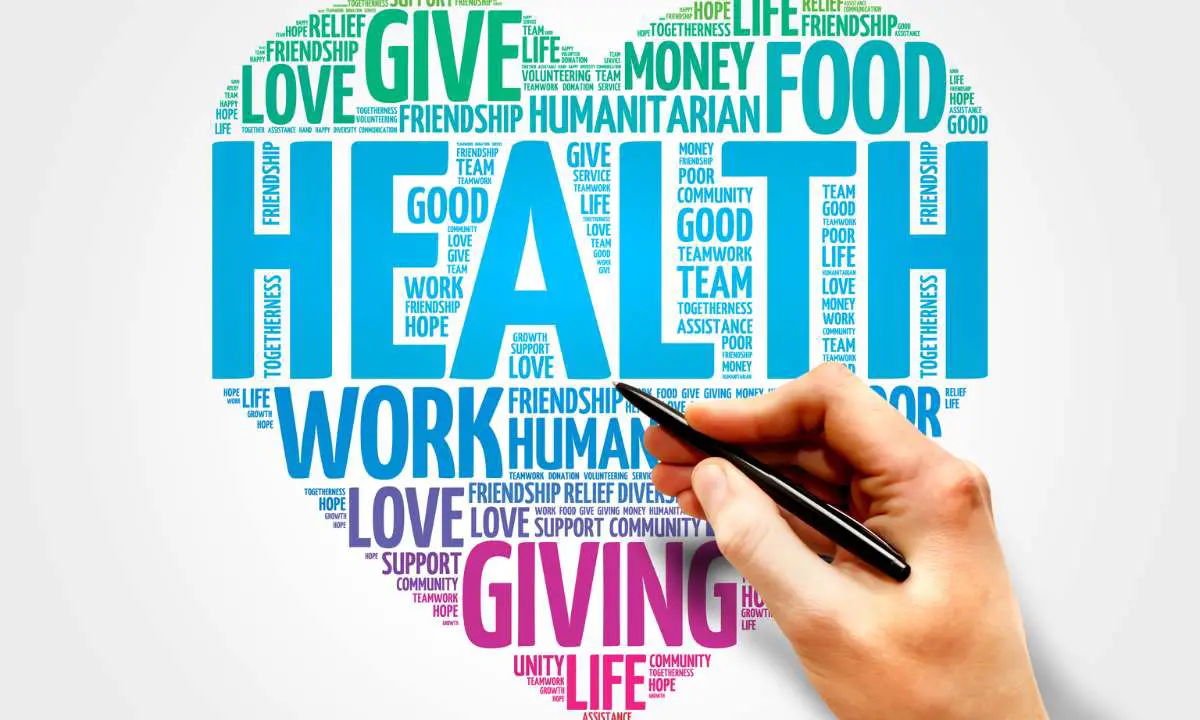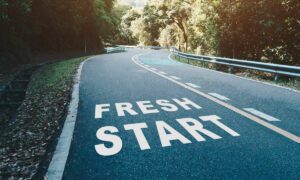Reiki is an ancient Japanese healing practice rooted in the belief that energy can be used to help achieve a healthier, stronger physical and mental state. It has become increasingly popular in the West over the past decade, due to its ability to reduce stress, improve overall health and boost self-esteem.
Reiki works by creating a balance within your body’s energy system through a series of hand movements and natural pressure points. The process not only relieves physical pain but it’s also purported to work on an emotional and spiritual level – helping you feel more connected with yourself and those around you.
Five Ways Reiki Could Change Your Life:
1) Reduces Stress & Anxiety:
Due to the gentle touch-based approach of reiki therapy, it helps relax people into a profoundly calm state which reduces their stress levels and feelings of anxiety or panic. An immediate sense of relaxation is often reported following sessions and even weeks later.
2) Improves Sleep Quality:
Reiki works on physical as well as psychological levels, so it can promote good sleep hygiene by allowing people to de-stress before bedtime or even immediately prior to dozing off. Research suggests that regular reiki sessions can lead to better quality sleep overall while dipping into more restorative cycles during rem sleep.
3) Boosts Self Confidence & Self Esteem:
Reiki allows individuals to tap into forgotten thoughts or emotions that may have been suppressed due to past experiences or life events which allows for self-discovery or personal growth leading to improved self-confidence.
Opening up those channels helps people move forward from those stuck points allowing them further personal growth and leading to greater satisfaction with oneself
4) Enhances Emotional Intelligence & Spiritual Connection:
As people continue their reiki journey they invariably grow closer to themselves as well as develop a deeper connection with their spirituality allowing themselves greater emotional intelligence.
By being able to interpret emotions more accurately rather than acting on impulse without being properly aware of how one truly feels about certain situations in life thus enabling better decision making which will lead you through healthy paths in life whilst maintaining inner peace that transcends traditional means
5) Connects You To Your Intuition:
By connecting with the right therapist and most importantly practicing self-reiki regularly you are able to hear your intuition much louder and clearer which allows you to make decisions more confidently while feeling more aligned and balanced mentally than relying completely on autonomous thought processes that often cloud hasty decision-making ability

What is Reiki?
Reiki is an ancient form of energy healing that works to restore balance and harmony to the body and mind. It is a holistic approach to wellness that works to remove blockages in the body’s energy channels, promoting a better sense of physical and emotional well-being.
Reiki is a simple yet powerful practice that has been known to alleviate physical, mental, and emotional issues and improve overall health.
Let’s take a look at the many ways Reiki can change your life and improve your overall health.
History of Reiki
Reiki is a Japanese healing technique created by Mikao Usui in the late 1800s. It’s based on the idea of channeling life energy through the body to bring about emotional and physical well-being. Often described as palm healing, reiki is believed by some to encourage relaxation and reduce stress.
The practice of Reiki began with Mikao Usui, a spiritual teacher who studied Shinto, Buddhism, yoga, and martial arts. After a long journey of spiritual training and deprivation which included a 21-day meditation on Mount Kurama in Japan, Usui’s understanding of healing energy was said to have been revealed to him as an enlightenment experience.
After this life-changing moment, he dedicated his life to teaching others about this universal life energy which he named ‘Reiki’ or ‘Universal Life Energy’ which was believed to be found all around us.
Today Reiki has spread around the world and it’s still used by many people seeking healing from physical ailments or emotional distress. It’s often used along with conventional illness treatments although its effects are only anecdotal at this time due to a lack of scientific study and evidence.
Benefits of Reiki
Reiki is an incredibly beneficial healing practice with the power to restore emotional, physical, and spiritual well-being. It is an ancient Japanese practice that uses universal life energy to reduce stress and promote relaxation. Reiki practitioners use hands-on healing to channel positive energy into areas of need in the body, often while the patient is resting in a relaxed, meditative state.
Reiki has incredibly powerful therapeutic benefits that can transform your life in many ways:
1. Relieves Stress:
A session of Reiki helps relieve stress by improving mood and reducing tension. During a session, the practitioner’s hands transmit vibrationally charged energy which soothes and relaxes the body on profound levels.
2. Improves Energy Levels:
Reiki fills you with increased energy by balancing your body’s life force energy and restoring vitality throughout the entire system. Those who are feeling drained of energy or suffering from fatigue may benefit greatly from regular Reiki treatments.
3. Enhances creativity:
Increasing creativity and imagination are common side effects of revitalizing treatments such as Reiki as it helps dissolve mental blockages that prevent you from expressing your true potential creatively.
4. Connects You To Your True Nature:
Through accessing higher states of consciousness during sessions, clients can receive insights about themselves leading to a deeper understanding of their true nature beyond their names, roles, or labels they carry around throughout life, allowing them to be seen in their fullest potential with clarity and peace of mind.
5 Reduces physical pain:
During a reiki treatment, healing energies pass through all layers of a human being (physical/mental/emotional) thus leading to improved general well-being and freeing people from any sort of physical pain created due to muscular tension or stiffness, etc.
Reiki and Stress Reduction
Using Reiki is one of the most powerful ways to reduce stress. Reiki is a form of energy healing that can help to relax your body and mind and promote a sense of calm and well-being. It is non-invasive, and holistic and helps to restore balance on a physical, mental, and spiritual level.
How Reiki Reduces Stress
The practice of Reiki is known for its healing and calming effect on those who practice it. Reiki works by using natural universal energy to bring the body and mind into balance and promote healing. By incorporating restorative techniques such as deep breathing and meditation, Reiki reduces stress levels and has a range of additional benefits to both physical and emotional health.
Incorporating regular Reiki treatments can lead to a calmer mind, reduction in negative behaviors, improved sleep patterns, improved relationships with others, better concentration, increased productivity in work or school; improved clarity of thought; relief from physical ailments such as headaches, jaw tensions or digestive discomforts.
It can also help improve the immune system by easing inflammation caused by stress. Additionally, it helps reduce irritability often associated with anxiety or depression.
Reiki enhances your inner peace allowing you to live more happily in the present moment while reducing feelings of fear that may be causing you stress.
You will become more aware of inner joys allowing you to make decisions freely while bringing forth creative solutions that before seemed complex or overwhelming. It is a way to connect with your spiritual energy allowing self-reflection that brings with it trust in your instincts and encourages positive growth in all aspects of life.
Reiki and Physical Health
Reiki is a holistic healing practice that originated in Japan. It involves the transfer of positive energy from the practitioner to the recipient. This healing practice has been reported to help with physical health problems such as pain relief, stress relief, and improved sleep.
Let us explore how Reiki can specifically help with physical health.
Reiki and Pain Management
Pain is a symptom caused by an underlying issue, but the condition that manifests may not be easy to identify. Despite this, medical advances have found ways to control pain so those affected may enjoy a better quality of life.
Reiki is known for providing healing benefits and may be used as an alternative or complementary form of pain management therapy. Reiki encourages the flow of a person’s own vital energy which warms and calms them in order to reduce discomfort and provide relief from tensions and aches in the body. Additionally, it can help to relax the mind which in turn encourages the body to heal more quickly.
Furthermore, reiki helps improve mental health by reducing feelings of anxiety, stress, and depression associated with chronic pain conditions such as backaches, migraines, fibromyalgia, and arthritis. The physical effects on the body during Reiki sessions have been reported to include a greater range of motion in joints due to improved flexibility as well as reduced swelling and inflammation from musculoskeletal complaints such as strains/sprains/tendonitis/bursitis.
Lastly, it can also increase energy levels naturally by balancing out energy fields within your body system. Treating yourself with reiki regularly can lead to long-term improvements that often require minimal effort but can make all the difference when managing chronic pain conditions or other physical ailments you may be experiencing.
Reiki and Immune System
Although empirical evidence is limited, Reiki has been found to greatly improve the physical and mental health of those who practice it regularly. Through its ability to reduce stress, regulate breathing, and release tension from the body, Reiki can improve and maintain one’s overall well-being.
One case study has demonstrated that regular Reiki treatments may have a positive effect on the body’s immune system. Published in the International Journal of Behavioral Medicine in 2016, the study analyzed whether a group of people exposed to regular Reiki treatments over six weeks was able to increase their levels of NK (natural killer) cells.
The group of participants receiving treatments reported significantly increased enthusiasm for life as well as improved stress-coping ability and greater physical performance. Additionally, all participants reported higher NK cell counts than before their Reiki sessions began. Results from this study suggest that further investigation may uncover tangible benefits that form part of an integrative medical approach when seeking natural healing methods.
Though inconclusive evidence exists connecting Reiki with enhanced immune function, it is thought by many that incorporating regular sessions into your self-care repertoire can lead to improved physical health over time. Engaging with this ancient holistic practice may help bring balance back into our lives without introducing any chemicals or drugs into our bodies. Many believe that ancient wisdom always holds answers if we take the time to look within ourselves and give our bodies what they need in order to heal.
Reiki and Mental Health
Reiki is an ancient energy healing technique that has been used for centuries and is gaining popularity in modern times. By using Reiki treatments, many people have reported improved psychological and emotional well-being.
Reiki and Depression
Reiki is becoming increasingly popular around the world, particularly for its purported healing benefits. Mental health benefits from reiki are thought to include helping to reduce stress, anxiety, and the symptoms of depression. This can be achieved by creating states of deep relaxation, improving circulation, and increasing positive energy.
The practice of Reiki encourages us to become more in touch with our authentic selves by recognizing thoughts and emotions that create imbalances within us. Although it is not a form of therapy, people who have experienced reiki have reported that it has allowed them to explore their feelings and bring awareness to any destructive patterns in their lives.
As a result, they have been more conscious of making decisions that help rather than harm them emotionally and mentally.
In particular, it has been observed that reiki is beneficial in helping individuals cope with stress-related depression due to the calmness it brings and the clarity it provides.
Moreover, by connecting deeper into their inner wisdom during a session of Reiki it is thought that people can gain insight into understanding what pain they may be carrying with them as well as finding new solutions for personal growth and self-healing.
The two key activities behind this practice are known as chakra balancing – aimed at restoring harmony between body-mind-spirit – and aura cleansing – designed to expand consciousness towards joyfulness and serenity across each of the seven layers (auric bodies) which constitute our spiritual bodies.
In conclusion, regular sessions of reiki can be beneficial for depression sufferers looking to restore mental balance through quietening one’s mind, expanding one’s level of awareness about oneself as well as deepening one’s sense of connection with meditation or mindfulness practice exercises if desired.
Reiki and Anxiety
Reiki has the potential to reduce anxiety in several ways. Practitioners believe that Reiki helps rebalance the body’s energy system and encourages relaxation. As a result, anxiety levels can be decreased, which can lead to improved mental health. Additionally, Reiki helps people become more aware of their thoughts and emotions, allowing them to find inner peace and practice better self-care.
Studies have shown that Reiki can help reduce areas of stress, depression, and tension. One study evaluated the effects of Reiki on hospital patients who were dealing with chronic pain. After receiving five 30-minute sessions of Reiki therapy over two weeks, patients reported less anxiety and fatigue as well as an increased sense of inner strength and well-being.
By reconnecting with our body’s natural healing capacities through Reiki’s gentle touch, practitioners help clients relax more deeply than they may have achieved previously—with lasting effects after each session has ended. The calming effects work much like those achieved through meditation or yoga but without having to learn a new set of techniques or movements.
The relationship between practitioner and client requires mutual trust: Clients not only feel comfortable but also believed in the power of energy healing for relief from physical and emotional distress associated with anxiety or other mental health battles. Some research indicates that successful healing is attributed to this trusting relationship between practitioner and client providing comfort for their issues or concerns creates relief from them longer-term results in reduced stress-response arousal symptoms related to generalized anxiety syndromes such as depression, fatigue, difficulty concentrating, and irritability.
Conclusion
In conclusion, it is evident that reiki can have remarkable effects not just on physical health and well-being, but also on mental and emotional states. It has the potential to improve overall life satisfaction, create more trust in the underlying subtle energy systems, and help improve physical vitality.
Moreover, by introducing practices that help you stay aware of your own energy body in relation to others and your environment, reiki can help you make positive changes in your life. By practicing self-compassion through this process of mind-body healing, profound levels of transformation can be achieved.



